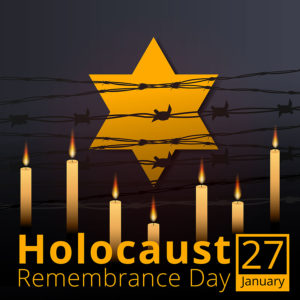Anti-Semitism’s lengthy history is built on ignorance and the perpetuation of lies by people who hate Jews. It’s a disease far more incurable than a pandemic.
Over the centuries, despots disliked a people whose theology introduced a code of morality and justice that flipped civilizations. From pharaohs to Hitler and too many others to name, rulers responded with force and power, mostly sentencing Jews to slavery, ghettos and death.
Today, people continue to foment hate fueled by ignorance and lies, and still targeting Jews. The weapon of choice for ignorance and lies is a platform of recklessness called social media. Oh sure, when used responsibly, social media is a very productive tool. Such responsible behavior is not common these days.
But on Oct. 12, Facebook, with its users representing one-third of the world’s 7.8 billion people, decided to do something really bold about this recklessness by simply acting responsibly — the social media platform decided not to allow people to lie about the Holocaust.
Days later, Twitter announced its “hateful conduct policy” issued its own prohibition of “attempts to deny or diminish” violent events, including the Holocaust. Twitter has taken aim primarily at white supremacists and neo-Nazis.
Facebook’s Monika Bickert announced in a blog a hate speech policy update, specifically “to prohibit any content that denies or distorts the Holocaust.”
The company’s decision was prompted by the recent rise in anti-Semitism, not just vandalism or insults, but shootings and physical attacks, and an “alarming level of ignorance about the Holocaust.” Bickert noted a recent survey that showed that one in four American adults between ages 18 and 39 believed the Holocaust is a myth.
One might wonder how on earth is this ignorance possible in the United States?
For decades, survivors have made presentations. Newsreel footage starkly shows the horrifying, shocking images. Books on the subject fill libraries. Two-thirds (34) of the states in the U.S. mandate some form of Holocaust or genocide education.
About the same number of states have impressive museums, mostly in major population centers, or monuments seen by many others. The 16 U.S. states without such mandates have less population cumulatively than California.
There are 43 countries in the world with Holocaust museums or memorials. In Europe, Germany boasts 22 memorials and museums. France has 13 Holocaust memorials or museums. Greece has 10 museums and monuments. Those numbers don’t include memorials and displays in synagogues and temples.
Yad Vashem — The World Holocaust Remembrance Center — makes available “ready to print” exhibitions. Auschwitz-Birkenau is widely visited, but the solemnity of this hallowed earth is lost with eye-catching signage that welcomes tour buses.
The Simon Wiesenthal Center has exhibitions ready for travel. Steven Spielberg’s Shoah Foundation has created captivating holographic interviews of survivors that will give life to eyewitness accounts long after survivors take their final breaths.
The United Nations and its agencies, notably UNESCO (the United Nations Education, Scientific and Cultural Organization), with all of its flaws, embraces Holocaust education with permanent displays of art and various publications.
In May, the latest Holocaust-related legislation passed in Congress was the Never Again Education Act. More than 30 countries have adopted the International Holocaust Remembrance Alliance definition of anti-Semitism.
Despite all of the access to information, what has the world learned? It has learned that ancient hate thrives in the modern world.
So, Facebook’s banning of Holocaust denial is an important, courageous act of media leadership.
It’s been a long time coming and B’nai B’rith International has long advocated such a move. CEO Mark Zuckerberg is to be commended, though the company admits that enforcing the policy, policing the platform, will be quite a challenge.
Twitter’s announcement is equally welcome. But if the bright Facebook and Twitter coders can write algorithms and direct users with hashtags and other tools, they should be able to identify keywords that will curb the volume of hate posts before they hit the digital universe.
Germans worked hard to keep the Holocaust secret.
Rumors swirled as work camps becoming death camps — Dachau, Chelmo, Treblinka, Sobibor, Belzec, Auschwitz — were shockingly real. But the Nazi’s own record-keeping carefully lays out the horrific truth of the Holocaust.
Nazis even documented mass shootings, starvations, experimental surgeries, the crematoria, the piles of skeletal bodies. Thousands of camps dotted Nazi-controlled European countries. Eleven million people, more than six million Jews, were systematically murdered.
Of course anti-Semitism didn’t begin, or end, with the Holocaust, and rulers have been complicit in Jew hatred for thousands of years.
With the modern Jewish State of Israel maturing nicely at 72, the lies that generated anti-Semitism continue today from across the political spectrum, from extreme Islamists and with U.N. resolutions denying any ancient Jewish connection to the Western Wall, not to mention any Jewish roots there in general.
The United Nations could and should learn from the example of Facebook. Resolutions that deny undeniable Jewish history insult the U.N. mission. As for other media — all media — they should learn from the Facebook and Twitter examples.
For a media platform that could never police itself adequately from lies, rage baiting and hate — all things wrong — Facebook got this one right.
And Twitter followed.

